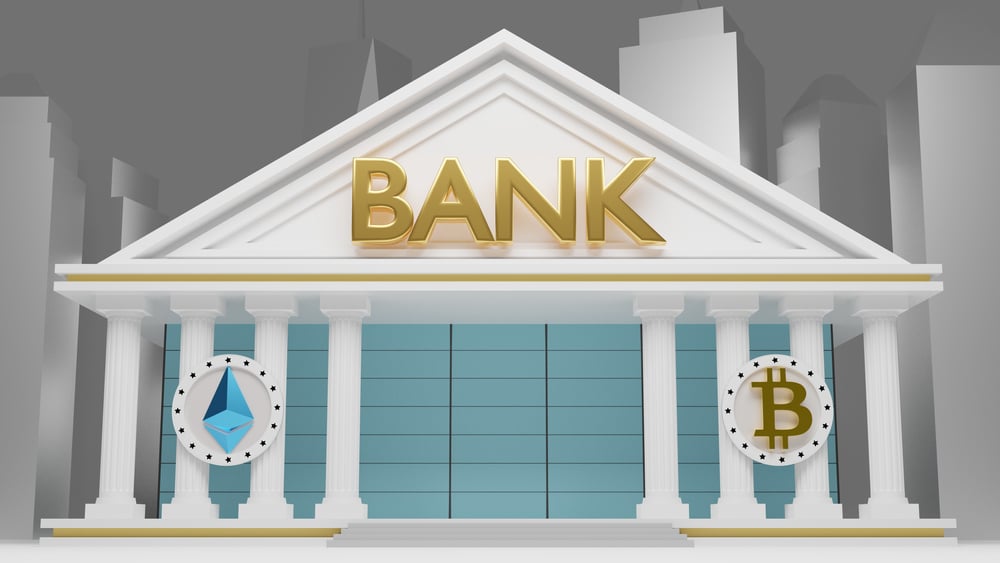Crypto banking is facing a chaotic situation, with the recent downfall of the FTX exchange resulting in detrimental runs of some popular regulated banks. Silvergate Capital Corp., one of the affected banks, needed to sell its assets for a loss to repay depositors.
Currently, it has issued a warning that it may not be able to sustain itself like it was meant to earlier. Meanwhile, another bank had to give out an alert about the lack of insurance for those who deposited fiat funds with its customer Voyager Digital.
These events have left the future of crypto banking uncertain and investors on edge. Banks providing services to crypto platforms and exchanges are under increasing pressure from U.S. regulators to withdraw their support.
This regulatory crackdown has sent shock waves through the crypto world, with the recent decision by the U.S. Federal Reserve to reject Custodia Bank’s membership application serving as a major blow to the industry.
(Advertisement)
CypherMind-HQ.com Artificial Intelligence Crypto Trading System – Get Ahead of the Curve with this sophisticated AI system! Harness the power of advanced algorithms and level up your crypto trading game with CypherMindHQ. Learn more today!
Custodia Bank, a full-reserve bank offering payment and custody services to crypto businesses, had hoped to pave the way for more traditional banks to offer similar services.
However, the rejection of its application has left the future of crypto-related banking uncertain. As the industry continues to navigate this challenging landscape, it remains to be seen where it will go from here.
The Crypto Regulatory Crackdown and Its Implications
The regulatory crackdown on crypto banking has been set in motion since January 3rd after the Federal Deposit Insurance Corporation, along with the Office of the Controller of the Currency released a statement about the risks of crypto-assets to banks.
Many may question why it has taken so long, with Bitcoin’s creation dating back 14 years and Tether’s existence for nine, for regulators to sever ties between the crypto ecosystem and the U.S. dollar system.
The answer lies in the statement itself, as the past faced a great deal of volatility and vulnerabilities in the crypto sector.
These events have underlined the major risks linked with crypto-assets and their participants, and banking organizations are advised to take note.
The regulatory authorities provide a comprehensive list of risks that they have identified in the current crypto ecosystem. These include frauds, legal uncertainties, deceptive marketing practices and other unfair or abusive practices.
They also highlight the volatility of the crypto market, the risk of runs on stablecoin reserves, risks because of the interconnectedness of the sector, weak risk management, and the heightened risk associated with public, open and decentralized networks.
The regulators emphasize the importance of preventing risks that cannot be controlled or mitigated from spilling over to the banking system. As the crypto ecosystem continues to evolve, it is vital to address these risks to ensure its stability and sustainability.
U.S Regulators Think Crypto is a Threat to Traditional Financing
It is evident that U.S. regulators view crypto as a significant threat to the traditional financial system. This is not because it is poised to take over but because it could potentially bring it down.
Despite the rhetoric around “unbanking yourself,” many lenders, stablecoin issuers and crypto exchanges require bank access.
All transactions made in dollars, except physical cash transactions, go through the U.S. banking system and are ultimately settled through the books of the New York Federal Reserve.
While fintech payment apps create the impression that dollar payments can be made without involving banks, a closer look at their operations reveals that they rely on a network of banks. In fact, Zelle is owned by a consortium of banks.
The same is true for international dollar transactions. As the crypto industry continues to grow, it is essential to address the concerns of regulators to ensure the stability of both the traditional financial system and the crypto ecosystem.
Final Thoughts
All of this underscores the critical role that banks play in the financial system, even as new technologies and financial instruments emerge.
As the crypto industry seeks to navigate these challenges, it must work closely with banks and regulators to ensure that the system remains secure and trustworthy.



